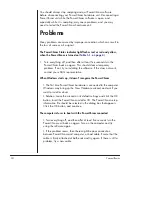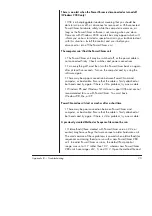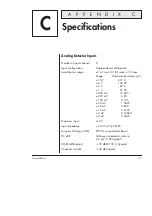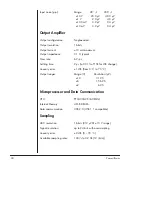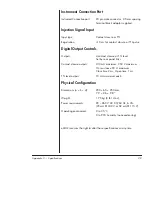
18
PowerChrom
When PowerChrom software is not collecting data the inputs are
internally disconnected from the detector signals and grounded, while
any non–zero residual signal (DC offset voltage) is measured. When
data recording is started the DC offset voltage is automatically
subtracted. In this way, the software corrects for any DC drift or offset
in the circuits that may develop between experiments.
Sampling Operation
The PowerChrom system ‘oversamples the signal. That is, it samples at
a much higher rate than the apparent rate at which data points are
being collected.
The PowerChrom system always samples the signal at 10 kHz,
whatever the rate (5 /min to 100 /s) selected for collecting data points.
An average of these samples is made over the duration corresponding
to the rate selected in the PowerChrom software. Thus each displayed
‘data point’ is the really the average of many individual signal
readings. The signal to noise ratio is improved by a factor of √n when
the average of ‘n’ individual readings is taken. Also, at selected rates
of 40 /s or slower, the averaging occurs over an integral number of
mains cycles, thereby minimizing the effects of mains hum.
The PowerChrom unit has a 16 bit analog-to-digital convertor (ADC)
which can resolve a signal into 2
16
, or 65536, possible amplitude
values. However, the PowerChrom software only uses 64000 of these
steps over the selected range, with the remaining 1536 steps providing
a small amount of overrange. The averaging process effectively
interpolates between these steps, with the final average being
calculated in 32 bit floating point format giving very high final
resolution.





















